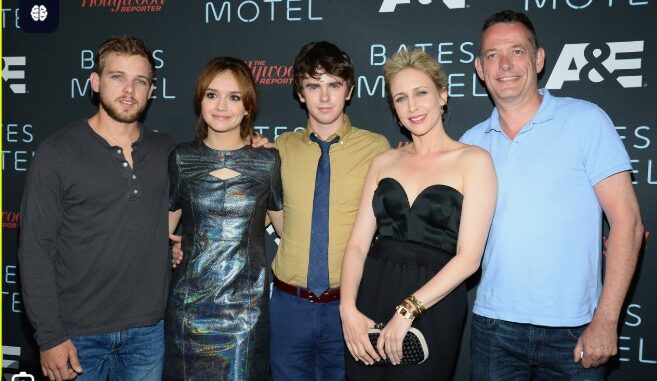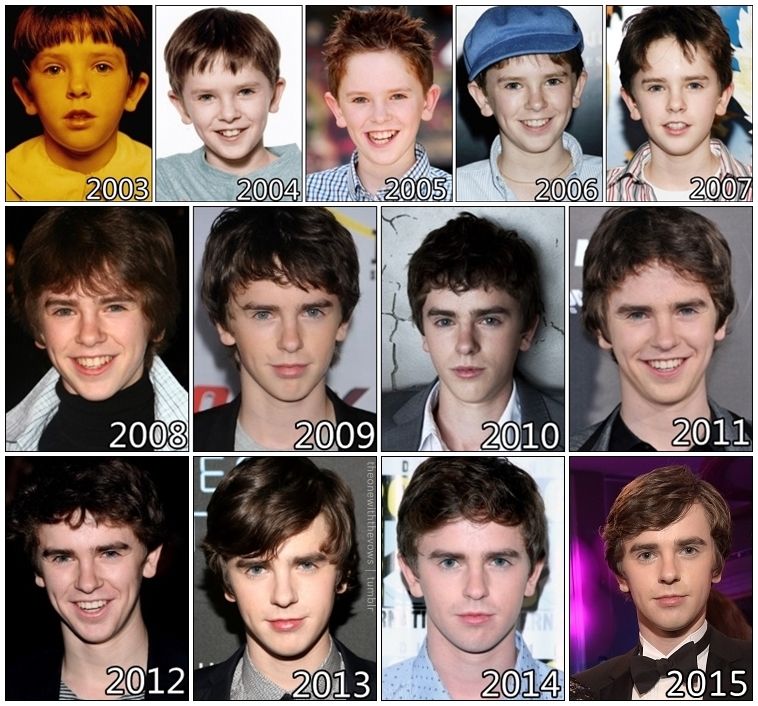
The “child star curse” is a Hollywood legend—a cautionary tale of young talents who burn bright only to fade under the weight of fame, pressure, and poor choices. Yet, Freddie Highmore stands as a radiant exception. From his early days as a cherubic prodigy in *Finding Neverland* to his commanding presence in *Bates Motel* and *The Good Doctor*, Highmore has not only survived but thrived, earning his place as the golden child of cinema. His journey reveals a rare alchemy of talent, discipline, and humility that has allowed him to defy the odds and redefine what it means to grow up in the spotlight.
Highmore’s story began in London, where he stepped into acting at age seven with small television roles. By 12, he was sharing the screen with Johnny Depp in *Finding Neverland* (2004), delivering a performance so poignant it left audiences and critics in awe. His portrayal of Peter Llewelyn Davies—a boy grappling with loss and imagination—wasn’t just precocious; it was profound. Roles in *Charlie and the Chocolate Factory* (2005) and *August Rush* (2007) followed, each showcasing his ability to embody innocence with emotional depth. But unlike many child stars, Highmore didn’t let early success define him—or derail him.

The pitfalls of fame are well-documented: burnout, scandal, or typecasting. Highmore sidestepped them all with a grounded approach. Raised by supportive parents—a talent agent mother and an actor father—he was shielded from the industry’s darker sides. Instead of chasing every role, he chose projects thoughtfully, prioritizing substance over stardom. He also pursued a normal life, enrolling at Cambridge University to study Spanish and Arabic. Graduating with a double first-class degree while filming *Bates Motel* (2013–2017), Highmore proved he was more than a performer—he was a scholar with a hunger for growth.
His transition to adult roles was seamless, a feat many child stars struggle to achieve. In *Bates Motel*, Highmore reinvented himself as the young Norman Bates, blending boyish charm with chilling menace. His performance was a revelation, earning praise for its psychological nuance and cementing his versatility. As Dr. Shaun Murphy in *The Good Doctor* (2017–present), he tackled the complex role of an autistic surgeon with sensitivity and authenticity, spending months researching to honor the character’s truth. The show’s global success and his Golden Globe nomination silenced any doubts about his staying power.
Highmore’s resilience stems from his refusal to rest on laurels. He’s not content to simply act; he writes and directs, contributing scripts and episodes to both *Bates Motel* and *The Good Doctor*. This creative drive reflects a restless curiosity, a desire to evolve beyond the “child star” label. Off-screen, he shuns the Hollywood spotlight, living quietly and avoiding the tabloid traps that ensnare others. As he once said in an interview, “Acting is about telling stories, not being the story.”
Freddie Highmore’s triumph over the child star curse is no accident. It’s the result of raw talent, disciplined choices, and an unwavering commitment to his craft. From the boy who captivated hearts in Neverland to the man who commands screens worldwide, Highmore has woven a career that sparkles with authenticity. He is the golden child of cinema—not because he was born to shine, but because he chose to keep shining, on his own terms.
